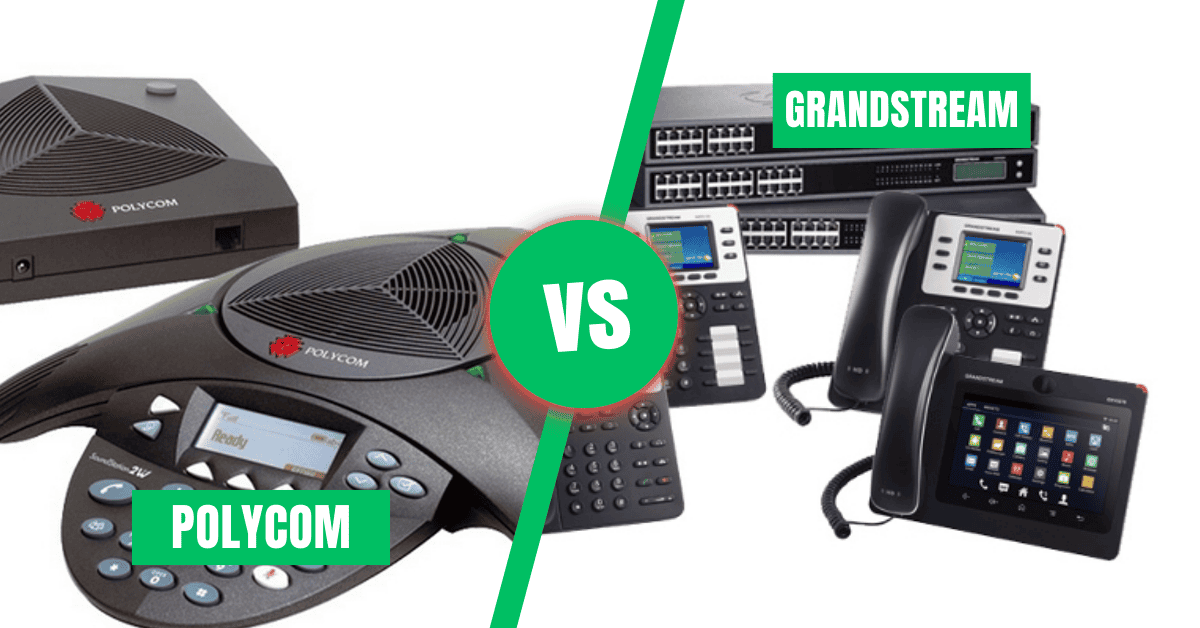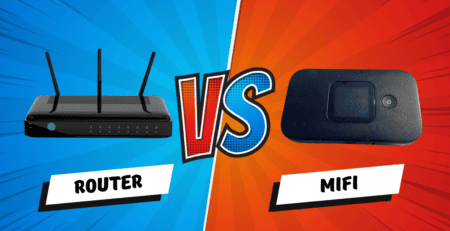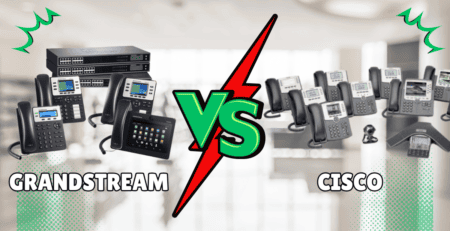Grandstream vs. Polycom: Which Phone is Better?
In the VoIP Industry, Grandstream and Polycom (also known as Poly) are well known for their IP phones and video conferencing solutions. Both companies are leaders in Voice over Internet Protocol (VoIP) technology, offering a wide range of products to enhance business communication. This article will compare these two giants, helping you understand their strengths, differences, and which might be the better choice for your specific needs.
Key Takeaways
- Grandstream offers a wider range of affordable options, making it suitable for small to medium-sized businesses.
- Polycom, now part of Poly (a subsidiary of HP Inc.), is known for high-end, feature-rich devices, often preferred by larger enterprises.
- Both brands provide excellent audio quality, but Poly has a slight edge in very high-end models.
- Grandstream offers more budget-friendly video conferencing solutions.
- Your choice should depend on your specific business needs, budget, and required features.
Brand Overview
Grandstream
Grandstream, founded in 2002, has quickly made a name for itself by offering affordable, feature-rich VoIP solutions. They cater to businesses of all sizes but are particularly popular among small to medium-sized enterprises.
Polycom (now part of Poly, a subsidiary of HP Inc.)
Polycom, established in 1990, merged with Plantronics in 2019 to form Poly. In August 2022, Poly was acquired by HP Inc., becoming a subsidiary of the tech giant. Poly is known for high-quality, professional-grade communication devices often used by larger corporations and in conference rooms worldwide.
Product Range Comparison
Both companies offer a variety of communication devices, but their focus differs slightly:
| Product Type | Grandstream | Poly (including Polycom products) |
|---|---|---|
| Desk Phones | Wide range, from entry-level to executive | Focuses on mid to high-end models |
| Conference Phones | Affordable options available | Known for high-end conference solutions |
| Video Conferencing | Budget-friendly systems | Advanced, feature-rich systems |
| Accessories | Varied selection | Expanded selection post-HP acquisition |
Grandstream provides more options at the entry-level, while Poly concentrates on premium offerings, now potentially with an expanded portfolio due to HP’s involvement.
Feature Comparison
While both brands offer high-quality features, there are some differences:
Audio Quality
- Grandstream: Very good across all models
- Polycom: Excellent, with some high-end models offering superior clarity
Video Capabilities
- Grandstream: Good quality, with affordable HD options
- Polycom: Exceptional quality, especially in high-end models
Unique Selling Points
- Grandstream: Cost-effectiveness, wide product range
- Polycom: Premium build quality, advanced features for large enterprises
Technical Specs
Both brands support essential VoIP protocols and codecs, ensuring compatibility with most systems. However, Polycom often includes more advanced codecs in their high-end models, potentially offering slightly better audio quality in ideal conditions.
Key technical aspects:
- Both support SIP protocol
- Both offer HD voice on most models
- Polycom’s high-end models may include more advanced noise-cancellation technology
Usability and User Interface
Ease of Setup
- Grandstream: Generally user-friendly, with intuitive web interfaces
- Polycom: May require more technical knowledge, especially for advanced features
User-Friendliness
- Grandstream: Simple, straightforward interfaces
- Polycom: More complex, but highly customizable for power users
Price Points
Pricing is a significant differentiator between these brands:
| Price Range | Grandstream | Polycom |
|---|---|---|
| Entry-level | $50 – $100 | $150 – $250 |
| Mid-range | $100 – $200 | $250 – $500 |
| High-end | $200 – $500 | $500 – $1000+ |
Scalability and Flexibility
Grandstream
- Offers a wide range of products that can grow with your business
- Good compatibility with various third-party systems
- Ideal for businesses expecting rapid growth or frequent changes
Polycom
- Provides enterprise-grade solutions that can handle large-scale deployments
- Excellent integration with major business communication platforms
- Better suited for established businesses with stable, long-term needs
Pros and Cons
Grandstream
Pros:
- Affordable pricing
- Wide product range
- Good for growing businesses
Cons:
- May lack some advanced features in high-end models
- Build quality can be less premium compared to Polycom
Polycom
Pros:
- Superior build quality
- Advanced features in high-end models
- Excellent for large enterprises
Cons:
- Higher price point
- Might be overkill for small businesses
Use-Case Recommendations
- Small Businesses: Grandstream offers cost-effective solutions without sacrificing essential features.
- Large Enterprises: Polycom’s feature-rich systems are ideal for complex corporate environments.
- Call Centers: Both brands offer suitable options, but Grandstream might provide better value for high-volume deployments.
- Conference Rooms: Polycom’s advanced conference phones and video systems shine in professional meeting spaces.
All in all, your choice will ultimately depend on the specific communication needs of your business and your current budget. I hope you enjoyed our comparison guide, and you may also want to check out our collection of VoIP Phones.












